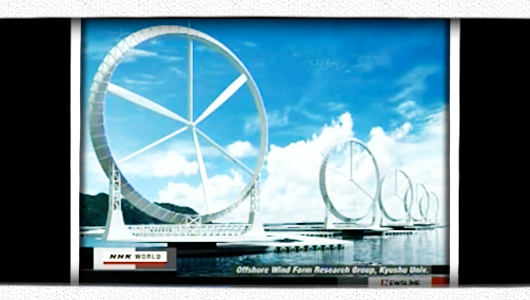Japanese Innovation Could Make Wind Power Cheaper Than Nuclear
After the damage caused by the Fukushima disaster, it only makes sense that Japan turn its resources to trying to find another efficient form of clean energy besides nuclear. Research into wind turbine development may have lead to a solution with stunning potential. Wind lenses, brims that go around the outside of a turbine’s blades, can double or even triple the turbine’s power output, bringing wind farms in line with the efficiency and output of nuclear power, without the danger of a meltdown.
The wind lens was developed at Kyushu University, where prototypes are already in use. The wind lense works by creating a pocket of low pressure in front of the turbine. As a result, air rushes to the low pressure point, conveniently enough, right through the turbine, increasing the speed of the turbine and ultimately, the amount of power that is put out.
If you want a really good idea of how far-reaching and revolutionary this power might be, let’s look at the potential for wind farm development in the U.S. Using standard turbines, we could produce about a third of the nation’s power by utilizing about 170,000 square miles of high yield wind areas. For scale, that’s about 1/4th of the size of Alaska. With conventional technology, it might be prohibitive to extend wind farms beyond that size and scope. After all, wind turbines need to be constructed and maintained and as the number grows, the problems of space, manpower and construction resources become increasingly prohibitive.
The use of wind lenses, however, could blow this out of the water. Wind lens construction and installation, compared to constructing additional pylons windmills, is trivial, and while the extra toll on turbines could require more maintenance, it is again trivial compared to building more windmills. In short, wind lenses could make wind energy a possible alternative to traditional power sources instead of just a supplement like it is today.
(via Mother Nature Network)
Have a tip we should know? [email protected]
